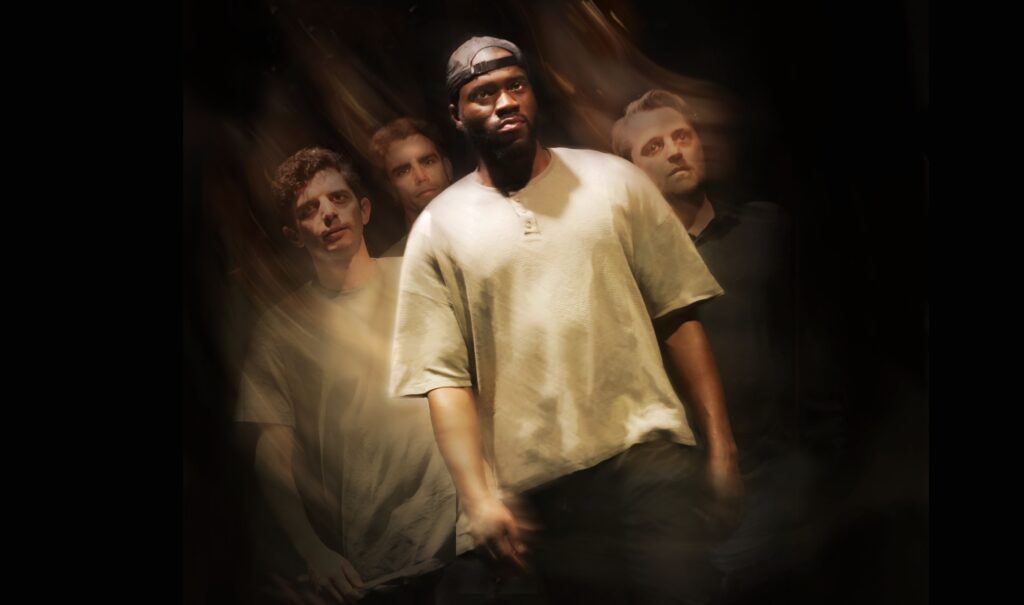Riverside Studios – until October 29 2023
Reviewed by Ben Jolly
3***
Three multiplying Iagos in a drastically abridged one-act Othello? This production at Riverside Studios is not quite like any Othello you’ve seen before, or is it?
Sinéad Rushe has delivered a fresh take on the classic but famously problematic piece by introducing a ‘polyphonic’ characterisation approach to our antagonist. Drawing inspiration from Michael Chekov’s improvisational and collaborative ideology and fusing it with philosopher Eugene Gendin’s approach to psychology, Rushe’s Othello provides an organic, dynamic and relevant piece of theatre.
Stripped down, this diet-version of Othello does not weigh heavy on the audience. It is well-paced and to the point with short scenes and impromptu bursts of energetic performances; this production is sure to appear more palatable to a new generation of the TikTok watching crowd; it runs without an interval which in this circumstance seems to be for the best as the momentum is able to keep swinging in full force. While this lighter load is easier to digest, there are some key relationships and intimate moments that are lost and the chemistry doesn’t have quite the proper time to grow organically.
Rushe’s production includes elements of lighting, music and choreography to help tell the story which is expertly executed and used succinctly enough not to overpower the material. Michael C. Fox, Orlando James and Jeremy Neumark Jones are particularly playful as the three faces of Iago; each provide a unique take on the role and their talents are a recipe to a fine piece of theatre. Martins Imhangbe in the title role has been wonderfully cast, his timing, presence and ease with the text translates to the audience. His physicality and use of voice blend well together to create a wonderful intrinsic and layered performance. Ryan O’Doherty’s performances as Cassio/Brabantio are equally fully fledged and well-conceived.
This idea and approach to storytelling feels exciting and while I believe that it detracts as much as it adds to the performance of the play as a whole, I believe it to be an idea that could translate to a multitude of plays from our history in order to seek out new details, emotions and psychological intel. Watch this space!

